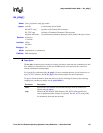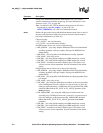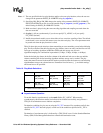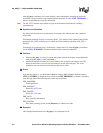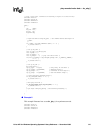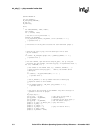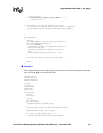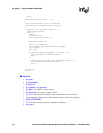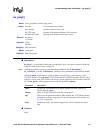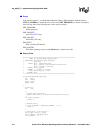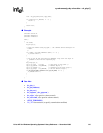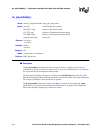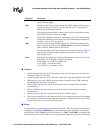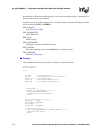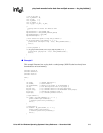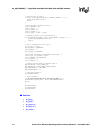
Voice API for Windows Operating Systems Library Reference — November 2003 307
synchronously play voice data — dx_playf( )
dx_playf( )
synchronously play voice data
!
!!
! Description
dx_playf( ) is a convenience function that synchronously plays voice data or transfers ADSI data
(using the ADSI protocol) from a single file.
Note: Although this function can be used for transmitting ADSI data, the dx_RxIottData( ),
dx_TxIottData( ), and dx_TxRxIottData( ) functions are recommended as the preferred method.
Calling dx_playf( ) is the same as calling dx_play( ) and specifying a single file entry in the
DX_IOTT structure. Using dx_playf( ) is more convenient for single file playback, because you do
not have to set up a DX_IOTT structure for one file, and the application does not need to open the
file. The dx_playf( ) function opens and closes the file specified by fnamep.
!
!!
! Cautions
None.
Name: int dx_playf(chdev, fnamep, tptp, mode)
Inputs: int chdev
• valid channel device handle
char *fnamep
• pointer to name of file to play
DV_TPT *tptp
• pointer to Termination Parameter Table structure
unsigned short mode
• playing mode bit mask for this play session
Returns: 0 if success
-1 if failure
Includes: srllib.h
dxxxlib.h
Category: I/O Convenience
Mode: synchronous
Platform: DM3, Springware
Parameter Description
chdev specifies the valid channel device handle obtained when the channel was
opened using dx_open( )
fnamep points to the file from which voice data will be played
tptp points to the Termination Parameter Table structure, DV_TPT, which specifies
termination conditions for playing. For more information on this structure, see
DV_TPT, on page 485.
mode specifies the mode. This function supports EV_SYNC (synchronous mode)
only.



